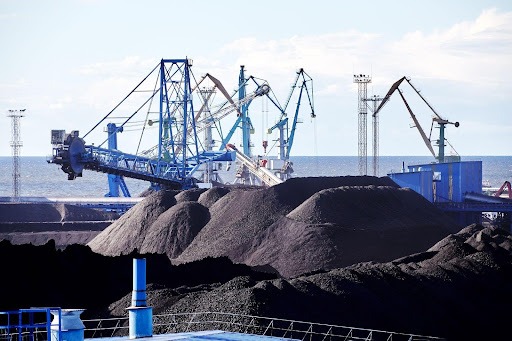Marine construction plays a key role in developing coastal infrastructure and maintaining essential services near water bodies. From building piers and wharves to constructing underwater pipelines, these projects demand precision and attention to detail. However, along with the technical challenges, marine construction must also navigate a complex web of regulations. These regulatory requirements are put in place to preserve marine environments, ensure safety, and uphold legal responsibilities.
For companies venturing into marine construction, understanding and managing these regulatory challenges is crucial. Regulatory compliance is not just a box to tick off; it’s a critical part of planning and executing successful projects. Let’s dive into what these regulations are, the challenges they bring, and the strategies that can be applied to tackle them effectively.
Understanding Regulatory Requirements
Navigating the laws and requirements in marine construction involves knowing various regulatory bodies and understanding the framework they enforce. In Canada, such projects are subject to oversight by several organizations, including Fisheries and Oceans Canada and Transport Canada. Each of these bodies sets forth specific regulations aimed at protecting the marine environment and ensuring safety.
Here’s a brief overview of some common regulations and requirements:
– Environmental Protection: Regulations focus on minimizing ecological impact. It might involve assessments to determine the potential impact on marine life or habitats.
– Safety Standards: Regulations ensure the safety of operations and personnel. This includes rules on equipment standards and operational procedures.
– Permitting Process: Obtaining the necessary permits from corresponding authorities may require documentation, plans, and impact studies.
Meeting these requirements demands a comprehensive understanding of what each regulation entails and how they affect project operations. Failing to comply not only risks legal penalties but can delay significant projects and increase costs.
Common Regulatory Challenges in Marine Construction
Marine construction companies often face a variety of challenges when dealing with regulatory requirements. Understanding these can help in planning ahead and reducing potential roadblocks.
1. Complex Permitting Processes: Securing permits involves rigorous processes and documentation that can delay project timelines.
2. Frequent Changes in Regulations: Laws can change, and keeping up with these updates requires constant effort and resources.
3. Environmental and Safety Assessments: These assessments require detailed planning and might involve additional costs to meet the standards.
4. Multi-Agency Coordination: Coordinating approval from various regulatory bodies can lead to complexities in project management.
Dealing with these challenges can significantly affect how projects are scheduled and budgeted, thus influencing their overall success. Understanding these hurdles is the first step towards mitigating them effectively.
Strategies for Tackling Regulatory Challenges
Tackling regulatory challenges involves more than just checking off a list. It requires strategies that are proactive and well thought out to keep projects on track and within legal boundaries. One effective approach is thorough planning and research. By knowing the regulations that apply to their projects early on, companies can create a solid foundation that supports compliance right from the start. This means understanding seasonal timelines as well, especially for regions like Mississauga, where environmental factors might come into play depending on the time of year.
Training and educating the team extensively on regulatory matters is another crucial strategy. When every team member is equipped with the knowledge of what regulations require, the work proceeds more smoothly, and the team can collectively avoid potential pitfalls. This also helps in maintaining a steady workflow without needing constant oversight from regulatory bodies.
Another useful tactic is early engagement with the regulatory bodies involved. Building a relationship with these bodies can lead to smoother communication and possibly even expedited approvals. When agencies know they are dealing with well-informed professionals who prioritize compliance, they often become partners in the process rather than obstacles.
The Role of Compliance in Sustaining Project Success
Compliance isn’t just a requirement; it’s a pillar that holds up the success and sustainability of marine construction projects. Adhering to regulations ensures the safety of both the environment and the crews working on these projects. By maintaining high standards, companies demonstrate their commitment to responsible practices, which can enhance their reputation and lead to future opportunities.
Safety is a significant aspect that regulations emphasize. When projects follow established safety guidelines, they reduce the risk of accidents and the resulting legal entanglements. This diligence not only protects the workforce but also prevents costly delays that could ripple through the timeline and budget.
Furthermore, the benefits of compliance extend beyond immediate project completion. Regulatory adherence often cultivates sustainability in operations, leading to a positive environmental impact over time. This focus on long-term outcomes can set a company apart, showcasing it as a leader that values responsible construction practices.
Summing Up the Importance of Compliance
In marine construction, addressing regulatory challenges effectively ensures projects are safe, efficient, and environmentally sound. A firm grasp of the relevant regulations, coupled with a proactive strategy for compliance, sets the stage for project success. By training teams, engaging with regulatory bodies, and emphasizing adherence, companies can navigate the complex landscape with confidence.
Ultimately, these efforts lead to projects that aren’t just completed but are done so with excellence and integrity. Achieving this balance can provide a competitive edge and demonstrate a company’s dedication to excellence in marine construction. By understanding and tackling regulatory challenges head-on, marine construction projects can thrive, creating not just infrastructure, but lasting impacts within the community.
For those ready to move forward in the industry and reduce regulatory hurdles, consider exploring how Industra Construction Corp. can support your needs. Our expertise in companies for marine construction can make a significant difference in delivering successful projects that comply with all regulatory requirements. Discover more about our services and how we can assist in ensuring your project’s success.

















